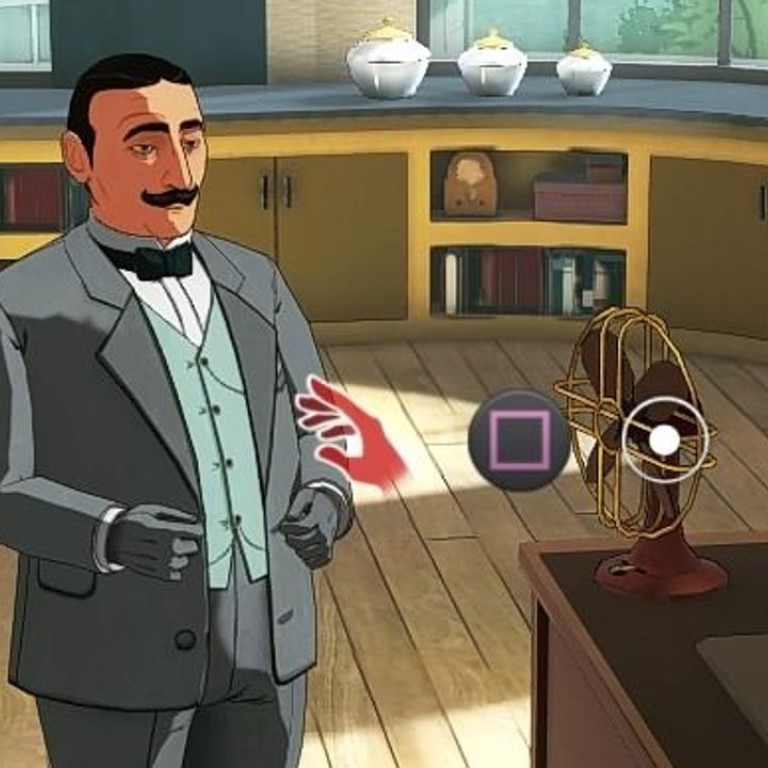
Game reviews: Agatha Christie – The ABC Murders and Assassin’s Creed Chronicles
Christie gets a delicious virtual rendering although it may not be to everyone’s taste, whereas Assassin’s Creed just indulges in tired stereotypes

Artefacts Studio

Agatha Christie’s writing – very refined, but with a dark, foreboding feeling – is so inimitable that it presents something of a problem. Remain too faithful to the source material and you risk alienating much of the general public. That’s the only real issue with The ABC Murders, a brilliantly faithful virtual adaptation of the book.
Available for the PC, Mac, PS4 and Xbox One, the game follows the author’s famed detective, Hercule Poirot, as he investigates a murder. Much of your time is spent dawdling around in beautifully designed environments that make great use of simple shaded animation: searching for clues, sneaking out suspicions and solving relatively easy puzzles. It’s all fairly standard adventure gaming stuff, and the story and gameplay never stray too far from the decades-old point-and-click puzzle formula.
Developer Artefacts has captured the Christie tone in Poirot’s interrogations and deductions; in the books, these stood out as easily the most engaging parts, and here they’re rightly given their due. Each question and line of enquiry is offered with multiple options, and fiction fans are tested on their most exact Poirot-isms to select the right piece of information. Similarly, deduction scenes use an intricate flow chart that brings together every element of the case: it’s at first relatively simple, but as the evidence piles up, only true detectives will be able to imitate their favourite detective.
And that’s the one minor problem in an otherwise creative adaptation – if you’re a Christie fan, The ABC Murders is a must, the perfect distillation of her words in virtual form, with enough accessibility to satisfy even the most casual of gamers. For everyone else, it might feel like just another adventure puzzle game.

Ubisoft

Is there any gaming series more resilient than Assassin’s Creed? Despite pre-order debacles, endless glitches and generally middling reviews, Ubisoft stubbornly churns out multiple releases year after year. The franchise’s only real saving grace? Its time-travelling concept, with each game jumping from one historical era to another: from knight-filled Crusades to the Italian Renaissance, pirate adventures on the high seas to the French revolution.
So when it finally expanded its Eurocentric horizons, what does Ubisoft do? It dumbs the game down. Currently available for the PS Vita but set for PC, PS4 and Xbox One release in April, Assassin’s Creed Chronicles collects three previously download-only releases, set in late Ming dynasty China, 19th-century colonial India and Russia after the October revolution.
Each era is teeming with possibilities, and the games span fascinating locations including Beijing and Macau. So why would you squander centuries of global history on a platform adventure that’s pretty much a side-scrolling Prince of Persia with a shoddy paint job?
That’s the worst offence here: a blatant disregard for each country’s past. The visuals for each game are often embarrassing stereotypes: ornate Mughal palaces, clichéd communist architecture and, worst of all for local players, straw-hat villages with junks on the horizon. Really, guys?
But where the game stands out, surprisingly, is in its toned-down gameplay. Taking the basic tenets of the series’ action-adventure origins and resetting them as a cruder but no less involving platformer, it’s often sleek and fluid, like an endless-runner with heavy hints of stealth. The mechanics might be somewhat plagued by a lack of variety, giving you few options beyond the standard bash through, but for the most part, it works as a mindless minor distraction.
Chronicles could’ve been so much more – it could’ve been three separate, involving games that expanded the Assassin’s Creed concept in a way that respected and acknowledged Asia’s history. Instead, we’re given a slapdash set of stereotypes that don’t even bother to go full-on with gameplay. The next tent-pole Assassin’s Creed is rumoured to be set in either ancient Egypt or feudal Japan, but after Chronicles, we’re not holding out much hope.
